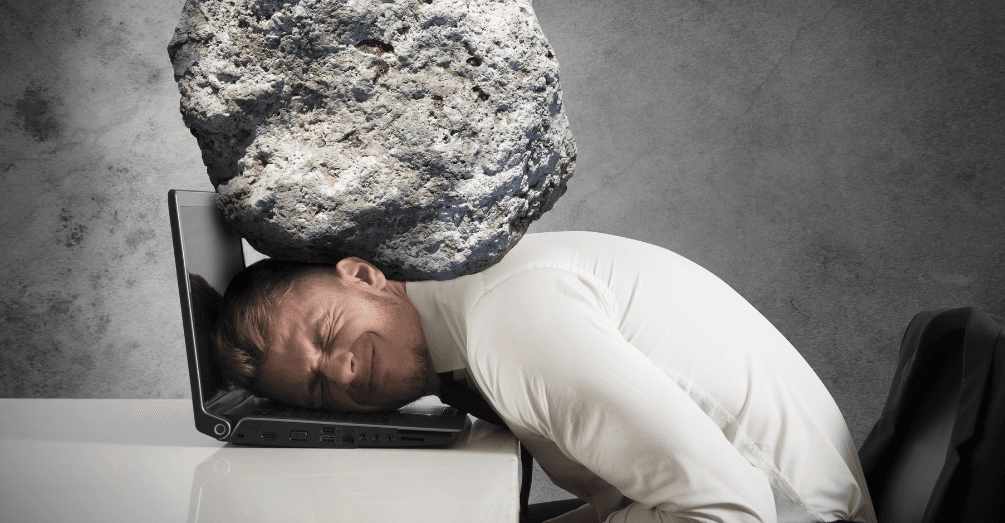Stress less, live more: how to avoid and alleviate negative stress

Stress is something that affects us all. Whether financial worries, health issues, problems at work or university, or relationship difficulties, stressful events are part of our everyday life. According to the latest Gallup Global Emotions Report, 42% of people worldwide reported feeling worried, and 28% experienced feeling very sad. Although stress is often considered an inevitable side effect of living in today’s world, unchecked and prolonged stress can have detrimental effects on your mental and physical health.
A new study from Molecular Psychiatry found that stress is worse for us than junk food and can even negate our healthy food choices. So even if you’re eating well, if you have the sensation that there is not enough time in the day to manage everything, your stress could be leading you down an unhealthy path. Learning to manage stress now can help you lead a healthier life, excel academically and professionally, and improve your overall well-being.
Stress: know your enemy
We are all familiar with stress. We talk about it, experience it, and commiserate with our friends about it. But do we really know what stress is?
Humans, and all organisms for that matter, have been dealing with stress since the beginning of time. But despite the negative connotation usually associated with stress, it is actually an adaptation designed to help us survive.
Stress is the way organisms respond to challenges quickly and efficiently in order to protect themselves and ensure their survival. Stress is what produces the fight or flight reaction, kicking the prey’s body and mind into gear to react swiftly and avoid danger. When in a life-or-death situation, stress is useful.
However, while we’re now at minimal risk of being attacked by wild animals, we remain alert to potential dangers. In the modern world, our predators are deadlines, exams, and hospital visits—even preparing for positive events such as weddings or vacations can become stressful.
The good, the bad, and the ugly: eustress, distress, and just plain stress.
Although stress is an adaptation as old as life itself, the term ‘stress’ wasn’t used as it is today until endocrinologist Hans Selye coined it in the 1930s. Hans had some interesting thoughts when it came to stress, highlighting that “to be totally without stress is to be dead.” This “father of stress” believed that not all stress is bad, introducing the concept of two types of stress: eustress and distress. Scientists after Selye’s time followed and expanded on this concept.
According to Daniela Kaufer, a scientist at UC Berkeley, stress is designed to “help us react when something threatening happens, deal with it, and then also learn from it.” When stress is moderate and short-lived, it can actually increase mental alertness and performance.
At a molecular level, stress encourages the growth of stem cells that then become brain cells, which in turn improves our memory and brain function. This is similar to how physical stress, caused by lifting weights, encourages muscle cells to proliferate and grow. In short, what doesn't kill you makes you stronger—and smarter, for that matter.
On a non-molecular level, eustress can look like a deadline, motivating you to be productive and focused. Or maybe you are nervous about achieving a specific goal, which can be stressful but also motivates you to study, train, or work harder.
The key to identifying eustress over distress is to ask yourself: Does this stress motivate me and give me energy? Or does it overwhelm me?
When stress is just too much: the negative effects of distress
Extreme, prolonged, or chronic stress can make us feel awful, both mentally and physically. Headaches, body pains, an upset stomach, and trouble sleeping are all common physical symptoms you may experience. Loss of appetite or overeating are two ways different bodies react to stress. And those who have a predisposition to substance abuse or addiction can find these symptoms exacerbated by stress. On a similar note, people with preexisting mental health conditions suffer more severe symptoms when aggravated by stress.
People who experience extreme stress for a long period of time are also more likely to suffer from anxiety and to experience irritability and difficulty concentrating. We often tend to tell ourselves that when this project is finished, when the exam is over, or when we go on vacation, we’ll feel better—so we leave “fixing stress” to later. However, this approach can lead to prolonged stress and burnout. Over time, some hidden health complications of chronic stress can include a weakened immune system, reduced fertility, and an increased risk of cardiovascular disease (due to the constriction of blood vessels caused by the body’s response to stress).
 Managing stress
Managing stress
In order to deal with the constant onslaught of stress that naturally comes with being a student or a young professional, it’s essential to find ways to manage stress. Most of the time, we can't just avoid stress; it comes with our day-to-day activities. The key to thriving despite stress lies in the way we react to it and the tools we use to manage it.
Use stress to propel you forward in life and your career instead of letting it hold you back.
Movement. While one of the main buffers against the negative effects of stress is exercise, any type of movement can have great benefits. Whenever we move: go for a walk, jump, dance, or climb stairs, we produce endorphins, serotonin, and dopamine and reduce the cortisol level in our blood to get out of the flight or fight mode. By using our bodies, we can get out of the sympathetic mode, and it's a great tool. Changing our posture or breathing can help us fight stress and is always available.
Sleep. It may seem like a broken record, but getting a good night’s sleep can help combat chronic stress. Unfortunately, extreme stress can often cause insomnia, only exacerbating the repetitive situation. Try establishing a bedtime routine to wind your body and mind down at night. Drink the same type of tea, get into some comfortable pajamas, and settle in with a good book as close to around the same time every night as possible.
Establish boundaries. In today’s digital world, it can be hard to separate your personal life from work or school. With everything available at your fingertips, you may feel pressured to just answer one email or hop on a quick call. Separating work and free time is the first step in alleviating unwanted stress. Set boundaries such as removing a meeting app from your phone or silencing your email notifications after a certain hour.
Learn to relax. Take vacation days or personal days when they are necessary, they’re available to you in the workplace for a reason. As an intern or young professional, you may feel pressured to prove yourself or to put in some extra hours to show your dedication. Working hard is great, but remember, your work will be better if you are also taking care of yourself.
Time Management. Avoid feeling overwhelmed by making a schedule. Writing down a study plan and creating daily to-do lists can help you stay on track and manage your time well. If you have a plan, the impending end-of-semester rush or a big presentation at work can seem like an exciting final push instead of a downward spiral.
Ask for help. Friends and family are there for support. Instead of stressing over confusing concepts you still can't grasp, go to your professor’s office hours, find a tutor or ask your coworker to lend a hand. Feeling like you’re not alone can drastically reduce your feelings of stress.
Managing stress well is key to success in our rapidly paced world. Make sure you’re taking time to enjoy your studies or your job, as well as taking a moment to simply breathe.
